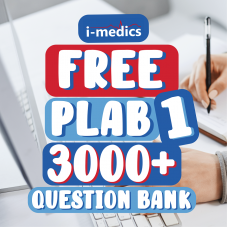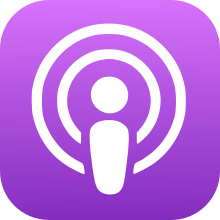DOCTOR INFORMATION
How To Pass The PLAB 1 Exam?
.jpg)
✏ What is the PLAB exam?
✏ Technical aspects of PLAB
✏ Who is it for and who is exempt of it?
✏ When can you take the exam?
✏ Where can you take the exam?
✏ What makes you eligible?
✏ How can you prepare?
✏ What resources are available?
✏ How long does it take to prepare for the exam?
✏ What can i expect on the day of the PLAB 1 exam?
✏ What to bring?
✏ The exam 📝 details Marking method
✏ Results
✏ After the exam 📝
✏ Summary
What is the PLAB 1 exam?
The Professional and Linguistics Assessment Boards (PLAB) 1 exam 📝 is taken by doctors looking to work in the UK 🌍.
It consists of 180 multiple choice questions❓ done over 3 hours ⏱. The PLAB 1 exam 📝 tests your ability to apply medical knowledge and clinical skills in the context of a UK medical setting 🏥.
The PLAB 1 exam 📝 is not based on your ability to recite and repeat facts, instead it is based on your ability to answer questions❓ that are based on UK best medical 🏥 practice.
It contain questions❓ or scenarios that are expected for a UK FY2 doctor. (An FY2 doctor is a doctor who has 1 year of hospital experience after medical school 🏥.) FY2 doctors typically work on surgical or medical wards, acute medical wards (including A&E) and community GP clinics 🏥.
Technical aspects of PLAB 1
The exam tests your knowledge on chronic disease management in primary care, emergency medicine, acute medicine, diagnosis, management, epidemiology, ethics and clinical anatomy.
Questions❓ will need to be answered based on the latest UK medical guidelines.
The exam 📝 comprises of 180 multiple choice questions❓ to be completed within a 3 hour ⏱ time frame. All questions❓ begin with a scenario followed by a question❓. You are then presented with five options, of which one must be selected as the answer.
The GMC website offers the PLAB BLUEPRINT (click to download) which highlights the contents of the exam 📝 and the qualities required of a doctor working in the UK 🌍. It also goes over all the skills, topics and procedures any doctor successful in the exam 📝 would need to exhibit and have knowledge of.
Who is exempt from the PLAB 1 exam?
Some doctors with suitable circumstances may be exempt from the PLAB exam 📝. Doctors such as EU nationals, postgraduates (certain degrees listed here), doctors who have secured a job through a GMC sponsor and doctors joining an MTI scheme.
However, all circumstances and requirements can be verified through the GMC directly 🏥.
When can you take the PLAB 1 exam?
The PLAB exam 📝 is conducted four times each year in the UK and overseas 🌍. A list of countries where the exam 📝 can be sat include: Australia, Bangladesh, Canada, Egypt, India, Nigeria, Pakistan, Saudi Arabia, South Africa, Sri Lanka, Sudan and the UAE.
Where can you take the PLAB 1 exam?
The overseas exams 📝 are conducted through the British Council in various countries 🌍. To view the locations and spaces available you will need to create a GMC online account where you can find information under the ‘My tests’ section. All information needed about the times and location 🌍 of the exam can be found from the GMC official website.
What makes you eligible?
Before being allowed to take the PLAB 1 exam 📝, you will need to demonstrate that you are eligible to take the test by being a medical qualification holder (e.g. MBBS, MBCHB).
You do not need to have attended your graduation ceremony or have your medical certificate or diploma in hand to book the exam 📝, although you would need to have passed your final medical exam 📝 and have English language proficiency.
You must have also passed one of the IELTS/OET exams 📝.
How can you prepare?
It is possible to prepare for the PLAB 1 exam 📝 by yourself as there are multiple resources both free and paid for available online. You will only need to plan, manage your time and study effectively. We would highly recommend using our FREE PLAB 1 question❓ bank, it includes practice questions❓ and notes: PLAB 1 FREE Questions
What resources are available?
There are free and paid for question❓ banks available, however you will need to remember that going through the question❓ banks alone is not enough preparation by itself. It is important to understand the questions❓ and the options to be able to determine why the correct ✅ answer is chosen, as these questions❓ will not repeat themselves exactly.
Social media is also useful when in search for communal information, online groups provide platforms for members to ask any questions ❓ or put up information they may have.
Types of study resources:
Question banks: these question❓ banks have been compiled from the past PLAB 1 exams 📝 to help give an idea of the type and style of questions❓ one can expect on the day of the exam 📝 and their explanations. These questions❓ are a useful resource as they can also help you assess your level of knowledge to determine how much additional resources you need. However, these questions❓ might not suffice when using them alone for preparation as you must have a deep understanding of the questions❓ and their option; why the chosen answers are the correct ✅ ones.
✏ FREE PLAB 1 Question bank with notes: https://i-medics.co.uk/plab1combined
✏ Video resources: https://i-medics.co.uk/plab1combined
Books 📚: While the explanations in the question❓ banks are quite comprehensive, it might not always give a deep understanding of the question❓ as needed. As mentioned above, it is very important that you find explanations that clarify and give a broad view of the answers. Therefore, you might supplement using books 📚 regarded as the holy grail in PLAB 1 preparation; such as the 'Oxford Handbook of Clinical Specialities' and the 'Oxford Handbook of Clinical Medicine' 🏥.
These books 📚 will serve as a useful reference for question❓ related topics and you can always combine these with the NICE guidelines.
The GMC Blueprint mentioned above also guides you on what topics you can expect on the day.
✏ PLAB 1 Podcasts: https://i-medics.co.uk/podcasts
✏ PLAB 1 Mocks: https://i-medics.co.uk/plab1mock
Online Medical Knowledge Websites:
✏ NICE Community Medical Guidelines: https://cks.nice.org.uk/
✏ NICE Hospital Medical Guidelines: https://www.nice.org.uk/guidance
✏ BNF (UK drugs prescribing guidelines): https://bnf.nice.org.uk/
✏ NHS (patient explanation leaflets): https://www.nhs.uk/
Social media groups: to be used as a platform to get information and answers to common questions❓. These could be questions❓ about the exam content (i.e the questions themselves, scenarios, question❓ themes, etc.), information about exam locations 🌍, dates and many more essential information gotten from past or current takers.
Join our PLAB 1 Facebook group now! https://www.facebook.com/groups/333259217605165
How long does it take to prepare for the exam?
Preparation time for the PLAB exam 📝 depends solely on your circumstances, ability to manage your time effectively and also how you chose to employ the resources available to you.
Total completion time can range from 3-5 months depending on how determined you are.
While some people make the mistake of studying the holy grail books 📚 (mentioned above) first, it is advisable to use them as a reference guide and not as a knowledge base for the exam 📝 they are not written in the format of containing essential info for this exam.
You will find yourself finishing the entire books 📚 and still not being familiar with the themes of these questions❓. It is recommended that doctors should attempt mocks at least 2-3 times before the exam 📝. With effective time management, it is possible to complete the first revision within two months.
It is important that as you revise, you make a note of the challenging questions❓, so that you may return to them later on. On the second and third mock exam, you need to make note of the completion time to ensure that you are getting better and faster at these questions❓. Always note that it is important to understand the questions❓ rather than cramming the answers and make reference to the books 📚 for clarification on challenging questions❓. You should also allow time for reviewing questions❓ before the exam 📝. You can also take the mock exams to get a sense of how well you can perform, although on a smaller scale as this is just for practice.
What can i expect from the day of the PLAB 1 exam?
To find your exam 📝 centre, you will be sent an email informing you of the location 🌍 and time. It is crucial that you arrive on or before time. The exam 📝 time will be a total of 3 hours ⏱ with no movement allowed in the first and last hour ⏱ of the exam 📝.
What to bring?
You will need to bring the following with you:
1) your passport
2) exam booking confirmation
3) stationary (2/3 pencils, eraser, sharpener).
Do not carry any valuables with you on the day as you will not be allowed to carry into the exam 📝 hall your bags, phones or any other items.
The exam details:
The exam 📝 comprises of a computer marked 180 single best answer questions❓ (SBAs).
These are scenario based with a short descriptive scenario and a question❓ asking what is the most likely diagnosis.
You will need to choose the best answer from the 5 options that are listed from A to E.
You will be provided with an A4 booklet which has all the questions❓ and normal lab values at the end. The questions❓ with photos or ECGs will be on a separate paper with their corresponding questions❓. You will also be given a double sided answer sheet with instructions on how to complete it.
Marking method
This exam does NOT use negative marking (this is when marks are deducted for incorrect ❌ answers), so you should attempt all the questions regardless of your knowledge. It is important that you enter only one answer to each question, as multiple entries to a question❓ will result in the answer being marked incorrect ❌.
Results
According to the GMC, results will be issue to candidates within 6 weeks ⏱ of taking the exam. You will be notified of the results via an email and you can check the results from your GMC account on their website under the ‘my tests’ section.
To better understand your results, you should note that the GMC groups skill areas 🏥 under three domains namely; 1) Applying knowledge and experience to clinical practice, 2) Clinical care: management, 3) Good clinical care: assessment.
The total number of correctly ✅ answered questions❓ will be your final score and you will also be informed of the score required to pass the exam, as well as the average score of all the candidates. You will also find the percentage of the questions❓ answered correctly ✅ in each of the domains.
After the exam
After taking the exam, all you can do is wait and maybe start preparing for the next step; PLAB 2. If the results are out and you pass the PLAB 1 exam 📝, you can immediately apply for PLAB 2 on the test dates given on the GMC website ?. It is good to start early to prepare for the next step as you must pass the PLAB 2 exam 📝 within two years of the PLAB 1 exam 📝.
For candidates who fail the exam 📝, you can apply to retake the exam 📝 with a maximum attempt of four times with a conditional final fifth attempt which you need to apply for and show evidence that you have made additional learning over a 12 month period.
The GMC 🏥 no longer offers the service of checking results after they have been assigned, so it is no longer possible to appeal your results.
Related Articles
Everything you wanted to know on how to pass the MRCGP RCA exam
Everything you wanted to know on how to pass the PLAB 2 exam and prepare for it!
Everything you wanted to know on how you can pass the MRCGP AKT exam and how to prepare for it!

















Leave your comment